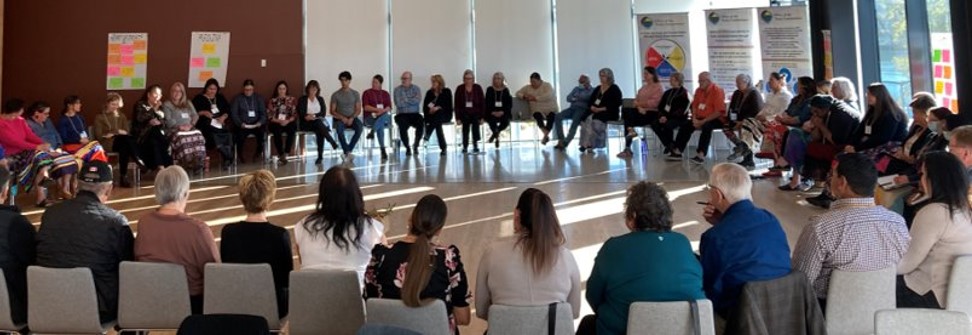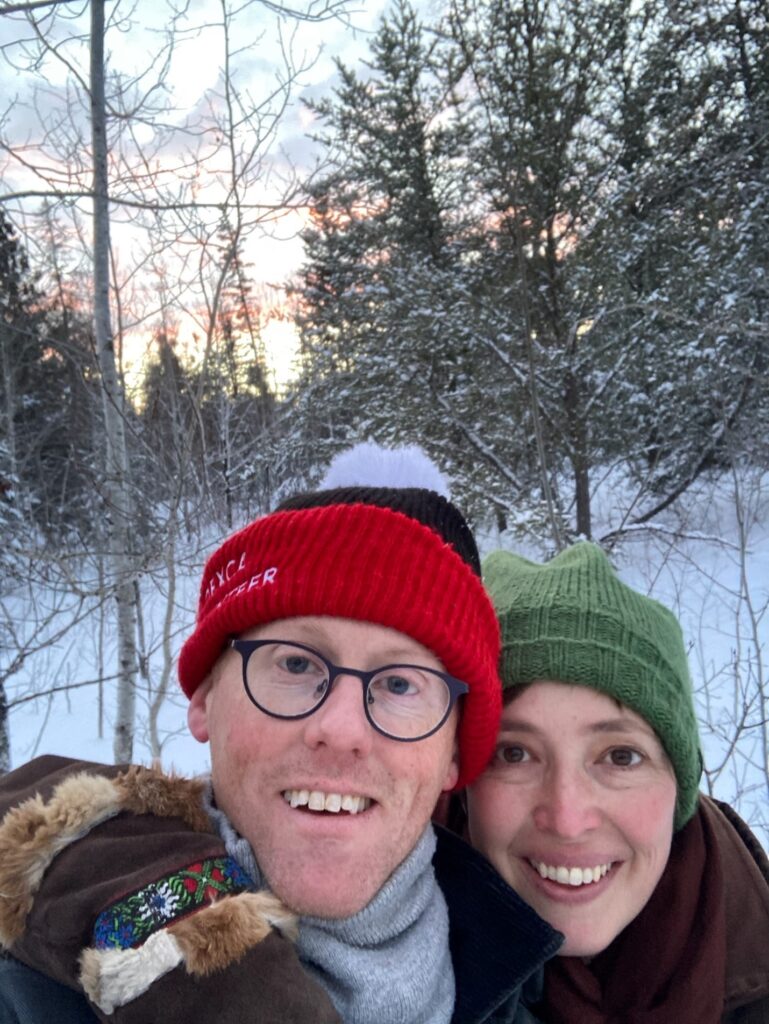Rhett Sangster, Class 11 (2012-2014)
Twenty Blogs for 20 Years
Before he was a Rotary Peace Fellow, Rhett Sangster (Duke MIDP ’14) was a Foreign Service Officer in the Canadian diplomatic corps, where he spent three years posted in Turkey, two years working on the conflict in Afghanistan, and another three years coordinating Canada’s policy on mediation, peace processes, and the effects of war on women and girls. While he expected to return to international diplomacy after completing his fellowship, his work in the MIDP program at Duke led him back to his home Saskatchewan, where he interned with the Office of the Treaty Commissioner (OTC) working on issues of truth and reconciliation for his Applied Field Experience. He is now the Director of Reconciliation and Community Partnerships for the OTC, where he coordinates efforts to engage the public and community leaders in supporting a movement for truth and reconciliation in Saskatchewan.
 I’ve just come back from a visit with some dear neighbours, a beautiful couple of white-haired poets who are downsizing and gifting me stories more valuable than the books and bowls that come with them. Last week my father and brother pulled my eleven-year-old from school for the day – to watch the local football team’s training camp. And next weekend I’ll go fishing with my uncles. We’ll laugh and sing John Prine and Springsteen around the campfire.
I’ve just come back from a visit with some dear neighbours, a beautiful couple of white-haired poets who are downsizing and gifting me stories more valuable than the books and bowls that come with them. Last week my father and brother pulled my eleven-year-old from school for the day – to watch the local football team’s training camp. And next weekend I’ll go fishing with my uncles. We’ll laugh and sing John Prine and Springsteen around the campfire.
This is the priceless gift the Rotary Peace Fellowship has bestowed upon me – it has brought me home. And it has taught me that peacebuilding, at its most important level – and at its most difficult – starts at the place where our roots are deepest. For this, I will forever be grateful.
I grew up in a small farming town in Saskatchewan, a Canadian province sparsely populated with a million souls braving cold winters and perfectly sunny summers on the great North American prairie. My town was settled around 1900 by Europeans who were given “free” land in return for turning the sod and forests to grain fields. The story I grew up with – of settler hard work – did not include the dark and ongoing history of Canada in which people were displaced from their land, in which children were forcibly taken from parents, where churches and the state worked together to “take the Indian out of the child”, and where a toolbox of assimilation policies were used to take lands and resources from Indigenous people.
I love and feel one with this land. It defines me, nourishes me, shapes me. And because of my strong relationship to this place, I am forced to face unsettling truths. My family benefitted from Canadian colonial policies on this land. I continue to benefit. The racism and violence faced daily by my Indigenous colleagues and friends on the other hand, is relentless. I won’t get into facts and figures, nor will I recount examples of the many stories I hear – experiences I’m largely shielded from because of my privilege as a middle-class, white, heterosexual, cisgendered male. But Canada has a long way to go to face its racist past, heal its wounds, and build a better future in which everyone benefits.
I think you could probably say the same for most parts of the world. Before my Peace Fellowship, I spent twelve years working as a Canadian diplomat. I was posted three years in Turkey, worked to mediate between Afghan and Pakistani border officials, and contributed to Canadian policy on places like Lebanon, Haiti, and Sudan. Each of these countries is shaped by histories of one people colonizing another – of taking lands and attempting to erase differences in language and culture. Even in Durham, North Carolina, where I spent two wonderful years at Duke, I was unsettled by the disturbing levels of daily violence, usually involving guns. I would argue that an inability to face and reconcile the truth of historical wounds is also at the root of violence and division in America today.
And so, we all have work to do. Peacebuilding, when most successful I think, is led locally. It’s each of us working to make our communities more equitable and just. While outside or international efforts can assist, they must do so by supporting local efforts. Too often it has been efforts to promote an outside view of “progress” or “development” that has led to great harm. Peace starts at the micro level. It starts with me individually, with my family, my community, my region, my country, my world. It’s my responsibility to know the history of my ancestors, to advance cultures of diversity and inclusion, to break down and rebuild systems that benefit everyone, and to build authentic relationships.
I could never have imagined how my life would change when I accepted a Rotary Peace Fellowship to spend two inspiring and insightful years studying with amazing professors and fellow students. I fully expected to return to international diplomacy. And while I loved that work and believe that it is incredibly important, I know that I made the right choice to pursue building peace at home.
It’s difficult work sometimes – but it’s where I should be. I will always be grateful to Rotary for steering me home.

